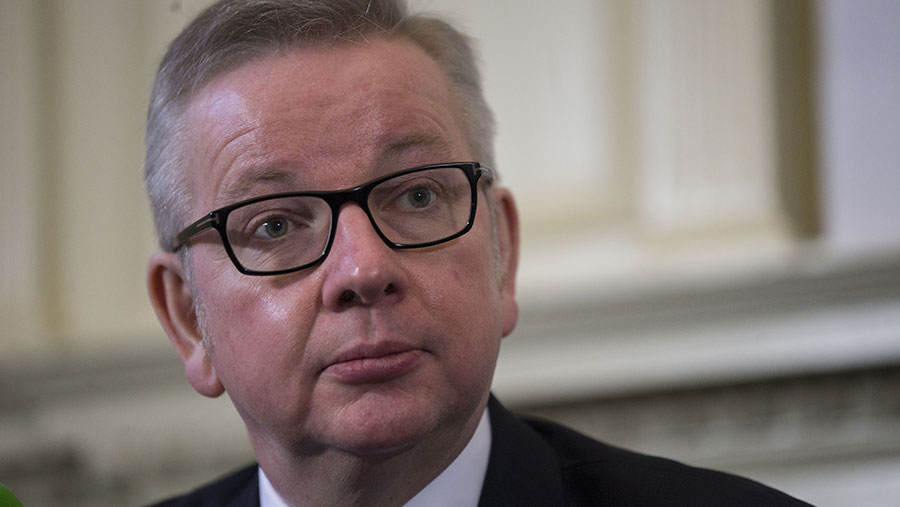OFC 2019: Embrace life after Brexit, Gove tells farmers
 Michael Gove © David Hartley/Rex/Shutterstock
Michael Gove © David Hartley/Rex/Shutterstock Defra secretary Michael Gove has promised a “world of opportunity” for UK agriculture – so long as farmers embrace life after Brexit.
Speaking at the Oxford Farming Conference, Mr Gove will say he recognises farmers need certainty to plan and invest in their businesses during what is a “critical year” for the sector.
The prime minister’s proposed Brexit deal provides that certainty, Mr Gove will tell delegates – as he pledges to make the case for long-term investment in UK agriculture.
See also: Farmers advised to secure inputs ahead of Brexit
Mr Gove is expected to say: “A week can be a long time in politics, but farming requires the patience and foresight to see beyond the immediate and scan the far horizon.
“It is a quintessentially long-term business, one that benefits from as much certainty as possible about the future.
Long-term investment
“While I cannot pre-empt the outcome of the government’s spending review later this year, I can continue to demonstrate the case for, and put in place the policies that underpin, long-term investment in British agriculture and the rural economy.”
Theresa May’s proposed withdrawal agreement will see the UK leave the Common Agricultural Policy while avoiding the disruption of a no-deal Brexit, Mr Gove will say.
It will also let the UK forge ahead with reforms to put British farming in a world-leading position in food production and environmental stewardship, he will add.
Mr Gove will pledge investment in research, development and innovation for UK farming, saying it will accelerate technological advance and help improve agricultural productivity.
‘Political upheaval’
NFU president Minette Batters, who is also speaking at the conference, has warned that farmers need clarity and stability amid the political upheaval caused by Brexit.
In a New Year message to farmers, Ms Batters said: “Brexit is scheduled to officially take place in less than 90 days.
“And while the clock keeps ticking, it’s still unclear as to what will actually happen and when and how that will impact on British food and farming.
“What we need is clarity.
“After nearly two-and-a-half years since the referendum took place, we are still no closer to finding out the details of our future relationship with the EU.”
Farmers also needed to know the kind of trading arrangements they could be operating under and where their future workforce would come from, Ms Batters added.
Call for support
MPs are expected to vote on Theresa May’s proposed Brexit deal later this month.
The prime minister postponed a vote before Christmas amid expectations she would lose due to proposals that will keep Northern Ireland in the EU single market if no permanent trade arrangement is reached with Brussels.
But Mr Gove will tell the conference that the advantages of the proposed deal outweigh any disadvantages.
“It is also one of the reasons why I hope my colleagues in parliament support the prime minister’s deal,” he is expected to say.
“It isn’t perfect – but let’s not make the perfect the enemy of the good.
“It not only gives us a 21-month transition period in which current access is completely unaffected, it also allows us to maintain continuous tariff-free and quota-free access to EU markets for our exporters after that.
“It allows us largely to diverge from EU regulation after the transition, to leave the Common Agricultural Policy and end all mandatory payments to the EU.”
